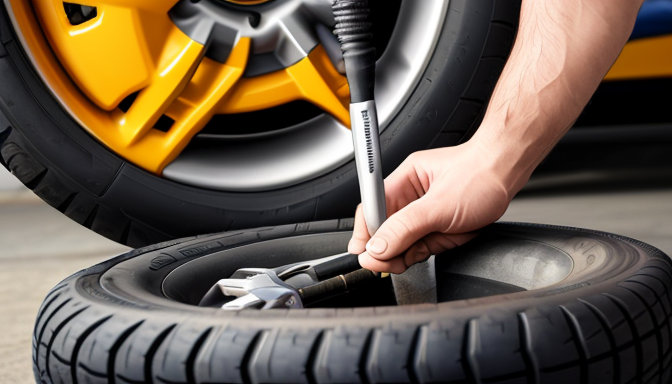When it comes to keeping your vehicle in tip-top shape, regular maintenance is your best friend. Think of your car as a well-oiled machine; if you neglect it, you might just find yourself stranded on the side of the road, waiting for a tow truck. Who wants that? By following some essential car maintenance tips, you can ensure that your ride remains reliable and safe.
Changing your oil regularly is vital for engine health. Fresh oil lubricates moving parts, reduces wear, and improves fuel efficiency, ensuring your vehicle runs smoothly and reliably. It’s like giving your car a refreshing drink; without it, the engine can overheat and lead to costly repairs. So, mark your calendar and don’t skip those oil change appointments!
Proper tire care is essential for safe driving. Regularly checking tire pressure, tread depth, and alignment can prevent accidents and enhance fuel efficiency, ensuring a safer journey on the road. Imagine your tires as the shoes of your car; if they’re worn out, your vehicle won’t grip the road as it should. A simple check can make a world of difference. Remember, under-inflated tires can lead to blowouts, while over-inflated tires can decrease traction. So, keep an eye on those tires!
In summary, a little bit of preventative maintenance goes a long way in keeping your car safe and efficient. Whether it’s changing the oil or checking your tires, these small steps can help you avoid big problems down the road. So, are you ready to give your car the care it deserves?
Regular Oil Changes
Changing your oil regularly is not just a suggestion; it’s a necessity for keeping your engine in top shape. Think of your engine as the heart of your vehicle. Just like a heart needs clean blood to function efficiently, your engine requires fresh oil to keep its moving parts lubricated and happy. Without regular oil changes, that smooth ride can quickly turn into a rough journey filled with unexpected breakdowns.
So, how often should you change your oil? It depends on several factors, including your vehicle type, driving habits, and the type of oil you use. Generally, it’s recommended to change your oil every 3,000 to 7,500 miles. However, always check your owner’s manual for specific guidelines. Here’s a quick breakdown:
| Oil Type | Change Interval |
|---|---|
| Conventional Oil | 3,000 – 5,000 miles |
| Synthetic Blend | 5,000 – 7,500 miles |
| Synthetic Oil | 7,500 – 15,000 miles |
In addition to regular oil changes, keep an eye on your oil level and quality. If it looks dark and gritty, it’s time for a change. Regular maintenance not only enhances your engine’s performance but also improves your vehicle’s fuel efficiency. So, don’t wait for that warning light to flicker on your dashboard; take charge of your car’s health today!

Tire Maintenance and Safety
When it comes to keeping your vehicle safe on the road, tire maintenance is a game changer. Think of your tires as the shoes of your car; just like you wouldn’t run a marathon in worn-out sneakers, your car can’t perform at its best on bald tires. Regularly checking your tire pressure is crucial—under-inflated tires can lead to poor fuel efficiency and increased wear, while over-inflated tires can cause blowouts. So, how do you know what your tires need? It’s as easy as checking the manufacturer’s recommendations, usually found on a sticker inside the driver’s door.
Another vital aspect of tire safety is monitoring tread depth. You can do this using the classic penny test. Simply insert a penny into the tread with Lincoln’s head facing down; if you can see all of his head, it’s time to replace those tires. Additionally, consider getting your tires rotated and aligned every 5,000 to 7,500 miles to ensure even wear. This simple step can extend the life of your tires and keep you safe.
In summary, maintaining your tires is not just about prolonging their life; it’s about ensuring your safety on the road. So, grab that pressure gauge and make tire checks a part of your routine. Trust me, your car will thank you!
Frequently Asked Questions
- How often should I change my oil?
It’s generally recommended to change your oil every 3,000 to 5,000 miles, but check your owner’s manual for specific guidelines for your vehicle. Regular oil changes keep your engine running smoothly and efficiently.
- What should I check for in tire maintenance?
You should regularly check tire pressure, tread depth, and alignment. Properly inflated tires improve fuel efficiency and safety, while adequate tread depth ensures better traction on the road.
- How can I tell if my tires need replacing?
If your tires have less than 2/32 of an inch of tread left, or if you notice uneven wear or cracks, it’s time to consider replacing them. Don’t wait until it’s too late—your safety depends on it!
- What are the signs of engine trouble?
Watch for warning lights on your dashboard, unusual noises, or decreased performance. If your car is shaking or struggling to accelerate, it’s best to get it checked out to avoid bigger issues down the road.